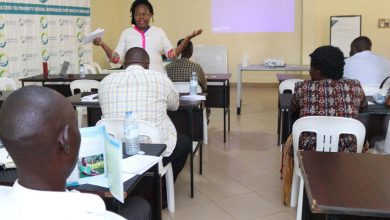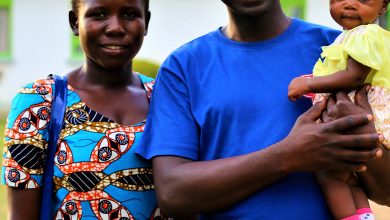
By Leilah Baale
Experts are hopeful that family planning initiatives in Uganda, will encourage wider contraceptive use by having young people act as “envoys” for family planning, furthering the discussion on reproductive health and rights in Uganda during the COVID pandemic 42 days lockdown.
HOMIMA CITY -UGANDA: Jackson Chekweko, Reproductive Health Uganda (RHU), Executive Director grins with optimism that over the years, a lot of skills are continually imparted to youths regarding Sexual Reproductive Health Rights (SRHR). The youths are trained in positioning themselves at various working groups in public and private sector to push for access to family planning methods, including the use of contraceptives.
Uganda has one of the world’s lowest contraceptive prevalence rate 33.3% women and 41.9% men (WHO, 2020), accompanied by the world’s highest fertility rate (5 children per woman). While the world averages 2.4 children per woman, Uganda’s average stands higher than that of Africa, where each woman averages 4.7 children. Uganda surpasses even the African average with five children per woman, and at an average of 35.1% modern contraception prevalence rate as compared to the global rate of 64 percent.
Chekweko, advises that in order to tackle that situation, youths prepared, trained and converted into community based contraceptive envoys in each of the districts, sub counties and villages of Uganda, receive training from SRHR professionals on communication, resource mobilization, advocacy techniques and advantages of us and the community. The youth envoys then use these skills to lead discussions with the ministry of health, local governments and other partners cultural and religious to demand access to contraceptives; youth-friendly environments, which are rights-based concerning reproductive health services in Uganda, and involvement in shaping the policies that affect them and their peers by choice.
“Emphasis of Reproductive Health Uganda, towards the youths is geared towards firming up civil society, so we work in coalition, to have the participation of not only youths, but also religious leaders and community leaders to push acceptance that takes into account the social, cultural and religious contexts and work with an understanding of that to develop programs and activities even rural areas of the country,” said Jackson Chekweko.
Engagements with government decision-making by youth envoys have already influenced some in the communities, Glorious Nyamukiza, Assistant District Health Officer (ADHO) Kikuube District confirmed. Conversations in his district through the ACCESS project and Advanced Family Planning initiative, have influenced policy makers to embrace free contraception, family planning and understanding reproductive health rights among the young people.
“With this process we have also been able to approach youth to discuss with them about responsible sexual engagement and not just to promote responsible sexual relationships but to encourage the general population to adopt a contraception method,” Nyamukiza says.
This has resulted into a reduction in teenage pregnancies from 35.2% in 2018/2019 to 20.5% in 2019/2020 a Kikuube district biostatistics report says.
31- year old Evelyn Nabwami, is a mother of four children who recently enrolled to use Family Planning methods at Buhimba Health Centre III.
Nabwami says the use of Family Planning methods has allowed her do productive work in the garden, to support her family socially and financially, but also to educate the children she has currently, without bearing more.
“I have loved Family planning methods because I now space my children and do more productive work, unlike in past where every two years I gave birth and did not do any productive work in the home and on the land for my family” Nabwami says.
She has become a Family planning champion in Kitunduli cell, Buhimba sub county, Kikuube district to encourage more women.
But Paul Kayibire, in – Charge Rwenyawawa Health Centre III in Kyangwali refugee camp found in Kikuube district says the demand for family planning methods among youths and young people is high, but the shortage of services, commodities and experts dwarfs the entire process.
“We need capacity building for our staff to administer especially long-term Family planning methods, and the supply of medicines and commodities used for the vulnerable and underserved to access them at no cost” Kayibire says.
Quraish Matovu, RHU youth Manager believes the grassroots approach aimed at educating communities and the youth about SRHR is part of a bigger initiative by RHU and its partners that aims to give an additional 2.2 million people in Uganda every year access to family planning methods by 2030. Youth envoys develop urban and rural teams to reach populations beyond major villages towns, schools and institutions. These communities often have the least access to family planning methods and little knowledge of contraception. Youth also utilize social media with Facebook pages and blogs to spread messages online under the Knowledge and Information on Safe Sex (KISS) project in Uganda.
Joyce Katusiime, one of the youths in Kikuube district says the objective is simple: to work with community leaders, religious leaders and government officials in building stronger communities and reducing the number of pregnancy-related deaths among youth. In educating young men, fathers-to-be also understand the high risk of unspaced births and possible health repercussions on women.
Health experts say better family planning empowers youths, especially young girls in making decisions regarding reproduction and also increases health, social and economic benefits.
According to Dr. Annet Nagudi, RHU Director WISH2Action project says teenage pregnancy is one of the leading causes of premature death, for mother and child and school dropouts among adolescent girls in Uganda. This makes awareness about reproductive health rights, Family Planning, and spacing births critical for aspiring mothers under 18 years, because they are most at risk of pregnancy related death and complications, and their children face greater health risks as well.
Get development’s most important headlines in your inbox every day.
Top of Form
Bottom of Form





